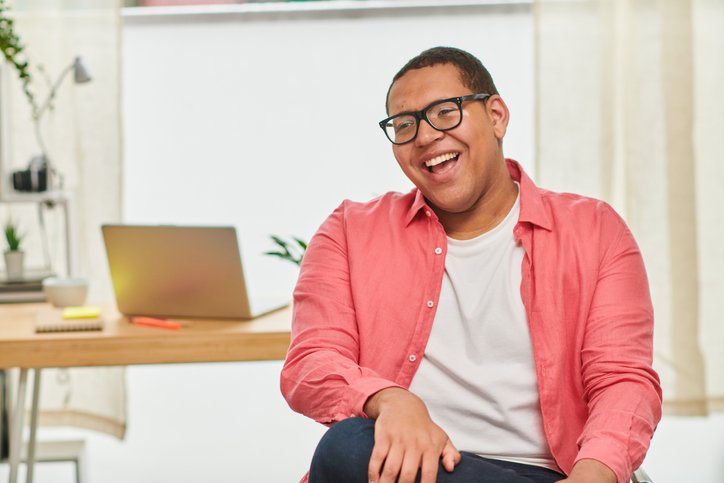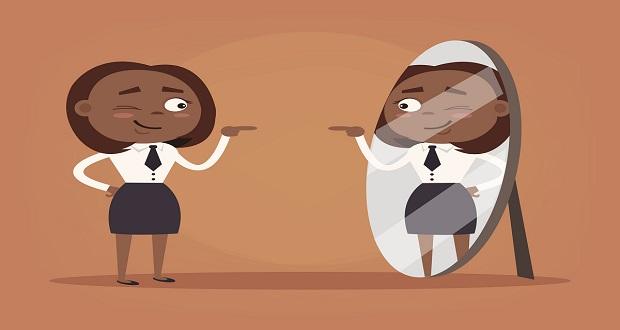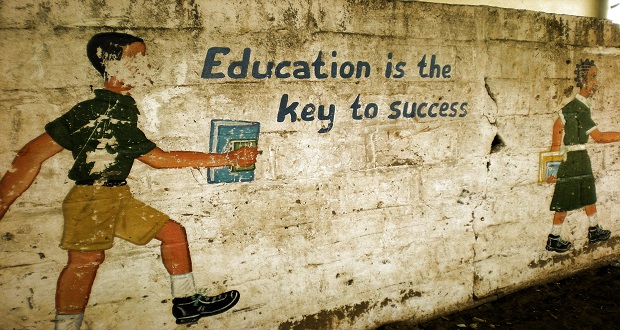
“Having a disability is not a choice and we don’t choose the cards we are dealt. However, there are many ways to play your reaction to my disability.”
— Cameron Dibble
Dealing with disabilities on a daily basis is a fight. A fight that is hard to overcome at times. While writing this blog I’m in this headache fog where I can’t think or process things clearly, to my full potential. This is because I’m dealing with a headache that can only be resolved surgically. It is one of my invisible disabilities. The way these headaches start is like a dimmer switch, it creeps on slowly but surely. These headaches are light switches, the dimmer is the onset that flips right off when I have brain surgery. I have now dealt with this type of headache three times. Twice in the last three years.
People tell me they admire my resilience — not sure how many times in life I’ve heard that — and yet I’ve only lived three decades. When I hear that, I then think I have no choice. These are the cards I was dealt. Even with the cards I was dealt I still had to develop motivational skills because on the days I don’t want to face the world, I still have to get up and be active. Having a disability has given me the chance to build other abilities, and motivation is just one example.
As I am walking up a set of stairs, I try to use the left railing because my left hand is not affected by cerebral palsy and it is stronger. Halfway up the stairs, I notice someone coming down staring at their phone without a care in the world. When people are only looking at their phones and not paying attention to their surroundings, it makes me think they don’t care about who is around them. I have to use the left side to feel more stable, to feel like I won’t fall, or to even be quicker. I know people behind me think I’m slow. I’m slow because I have no choice. If I’m too slow for you, then go around me. I won’t be offended. This is the story of my life. People don’t realize that those of us with disabilities have to be creative problem solvers and think about how we can get around obstacles we might face. I have to just keep swimming through life.
The term “developmental disabilities” is a broader category of an often-lifelong disability that can be intellectual, physical, or both. Developmental disabilities affect milestones that appear any time before full cognitive maturity and can be both visible and invisible. My disabilities are both invisible and visible. Research from the U.S. Census Bureau found that in 2010, approximately 57 million people — nearly 20 percent of the United States population at the time — were living with some type of disability. Of those, more than 38 million had a severe disability. This means that one in five people in the United States is living with some type of disability.” Think about how many people you interact with or even pass on a daily basis, how many people might have a disability, whether it’s visible or invisible. People with invisible disabilities are at times afraid to share that they even have a disability. This is because the responses we can get are very degrading, rude, or plainly insensitive. I have received:
“Are you sure it’s not just your imagination?”
“You look perfectly fine.”
Even, “I don’t believe you.”
Hearing other people say these things to me makes me think they couldn’t care less about what I go through on a daily basis.
Waking up and automatically having a challenge, whether I like it or not, can be exhausting and mentally fatiguing. There are days where I would like to crawl under my bed covers and hide from my disabilities. For me, that is not an option. I have days where I have to tell myself it does not matter how I feel. I still need to get out of bed and make food for myself. I need to take care of my service dog and her daily needs. There are days where I need to run errands or do chores around the house that I just mentally don’t have the energy to do. I can’t type with two hands. I can only finger type with my left hand. My cerebral palsy affects every little thing I do. Cerebral palsy is when your muscles and brain have difficulty communicating. This impacts both my right arm and leg. Other people can have it with their eyes, ears, or mouth. Cerebral palsy affects everyone in different ways. Some people use wheelchairs or even walkers.
As a kid, I used to wear an ankle foot orthotic (AFO) — basically a leg brace that went from my foot to my knee. I would always have to buy shoes a size up to fit the AFO or I would buy two pairs of the same shoe because my left foot is a size 11 and my right foot is a size 10. Just doing these small things made me feel like I was living my life swimming upstream. I couldn’t ever run or keep up with anyone. My AFO always slowed me down because it forced me to walk with my heel first then my toe. When I was in school kids would always tease me about my brace: Did you break your leg? How? What happened to it? Why are you so slow? That thing on your leg is so ugly, Kammie! I had an AFO from when I was really little to 10 or 11 years old.
The orthotic was just my first bite of being teased or misunderstood in life. Little did I know it would last a lifetime. Growing up is hard generally, but when growing up with a disability, it was hard to catch my breath. Being teased as a kid is one thing because children don’t understand. But then being teased as an adult … can someone please explain to me where that comes from? I don’t need to be teased. I’m a person just like you; I have a disability. I have built-in challenges that I have to overcome on a daily basis.
Although having a disability can be challenging, disabilities can have both positive and negative aspects. One positive for me is my service dog. Having my service dog and someone to watch out for is a reason for me to get out of bed every morning. Waking up to a wet nose in my face and wagging tail hitting my dresser and my bedside table is what gets me out of bed. There are days where if I could stay in bed all day I would, because some days I just don’t want to deal with the world. The hard part is, no matter if I’m in bed or not, my disabilities are still with me. I will never get a day off having them.
I will just keep swimmin’ — one foot in front of the other. People who have the ability to go out on a walk choose not to. I would love to. I’m beyond motivated to go out and move my body, but I can’t do it as much as I want to. I have had to live my life like this. I would love to get up and exercise, to take my dog on a walk, breathe the fresh air, have some time to myself, and maybe even have some screen-free time; unfortunately, I can’t do as much as I want to. I always feel in life I have to tell myself to “just keep swimming.” I will never develop these abilities because developmental disabilities are permanent. There is no cure.
People with developmental disabilities lose motivation because these are lifelong disabilities and we always feel like those around us don’t understand or even care to listen to what we deal with on a daily basis. Facing this fight is exhausting. Having my cerebral palsy and always walking slowly or not being able to walk with everyone makes me feel left out. I get a bad case of the FOMOs. Having to face that fight every single day of my life is no joke. Deciding whether I can trust someone or not when I cross the street is a daily battle. (Fun fact: The most trustworthy aid I have for crossing the streets is my doggie. I trust her more than any human. She is trained to stop me from getting hit by a car.)
Everyone has a unique experience with disability, whether it be visible or invisible. No two people are the same and we need to respect this. No one can tell what the other person is going through by their looks or how they walk. When someone says they have a disability, this doesn’t mean they need to be downgraded because you don’t understand their experience. They may have been navigating this experience for years. Maybe they just got diagnosed, or just started treatment. Who knows?
I write only from my experience, but I want this post to help open your eyes to your surroundings, and just ask that you be aware of your actions towards others. If someone wants to share their disability with you, respect that and be empathic. Maybe say, “Can I help in any way?” “Is there anything you need?” or “I’m here to support you however you need it.”
Having a disability doesn’t mean my life is miserable; these are the cards I was dealt. Although sometimes it is hard to just keep swimming, it is even harder swimming against the current of an unsupportive community. Having a disability is not a choice and we don’t choose the cards we are dealt. However, there are many ways to play your reaction to my disability, so play your cards wisely.


















